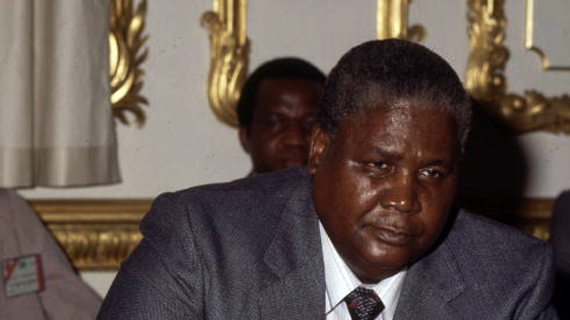
JUST as the country celebrates the 15th anniversary of the death of the founding father of Zimbabwe Joshua Mqabuko Nyongolo Nkomo.
I would like to take this opportunity to explode a few myths and fables about the late great freedom fighter. I will first of all explain Joshua Nkomo’s ethnic and language background and a few facts about his family as well as his later life .
Nkomo was a Sotho Contrary to popular beliefs Nkomo was of Sotho origin from the Kololo clan led by King Sebituane. It is shocking that some historians claim he was Kalanga (a language that Nkomo spoke fluently). A visit to the Joshua Nkomo museum and a quick check of his birth entry details and that of his brothers confirm that he was of Sotho origin.
The Kololo where a Sotho tribe that fled the area between Lesotho and South Africa during the mfecane at the height of King Shaka Zulu’s military exploits. Nkomo’s great grandfather was a Sotho man known as Ramatsatsi. Importantly that is why the name Ramatstsi is on Nkomo’s statue in Bulawayo.
Nkomo’s grandfather was a man known as Motsomi Mqabuko and popular family folklore claims that it was Motsomi who made his way to Zimbabwe and due to conquest by the Ndebele, was absorbed into the Ndebele military.
It is important to know that Nkomo was not the first nor was he the last Mqabuko in the family. Motsomi his grandfather bore the name Mqabuko and likewise Nkomo’s grandchild bears the same name and so does his sister’s son.
Nkomo’s father was Nyongolo Letswaniso Thomas Nkomo a preacher, dip tank supervisor and farmer who trained in South Africa.
Nyongolo was married to Mlingo Hadebe a fiery woman of Nguni descent. His remaining brother is Edward Ginqusaba Nkomo alongside sisters Regina, Margaret and Nkwenkwezi. John Nkomo was not Nkomo’s brother contrary to popular belief, township conjecture and urban folklore.
- Chamisa under fire over US$120K donation
- Mavhunga puts DeMbare into Chibuku quarterfinals
- Pension funds bet on Cabora Bassa oilfields
- Councils defy govt fire tender directive
Keep Reading
The Kololo fled into modern day Zimbabwe but after adopting the military methods of their tormentors-in-chief, the Zulu. It is the Kololo who named the Victoria Falls Mosi Oa Tunya although tour guide operators have got it all wrong, but proper research reveals that the very name Mosi A Tunya is derived from the Sotho language.
The very fact that Nkomo’s ethnic forbearers named the great Victoria Falls is itself a piece of history since the Kololo in their original form are no longer in existence. The Kololo moved further north into modern day Zambia conquering the local Luyana people.
Years later the Luyana revolted against the Kololo, but their language was long gone and what remained was an amalgam of Kololo (Sotho) and Luyana. The result is the modern day Lozi language which is spoken in Barotseland (Zambia).
This history is of symbolic importance because later on in his life Nkomo was to get a lot of support from countries which either his ancestors originated from or ended up settling in. South Africa where the Kololo partially settled was to partner Zapu in the liberation struggle with Nkomo’s Zipra partnering ANC’s Umkhonto weSizwe in the 1967 Wankie campaign.
Botwana through which the Kololo passed helped Zapu during the struggle and the most help came from Zambia where there were Zapu refugee camps and Zipra military camps. Zambia, the country where the Kololo settled and eventually disappeared from the face of the earth.
The journey of the Kololo through Southern Africa was thus a foreshadow of Nkomo’s later journey in life which started with university education in South Arica and political leadership in Zambia. Nkomo’s Pan Africanism political lense is also captured in the fact that the Kololo moved through five countries namely Lesotho, South Africa, Botswana Zimbabwe and Zambia.
The recurrence of the name Mqabuko in the Nkomo family is another interesting motif which is the subject of an entirely different study altogether, but all the same it is noteworthy to take cognisance that the name Mqabuko was also the second name of the great warrior Motsomi who was Joshua’s grandfather.
Other interesting facts about Nkomo include the following:
Steven went on to be a Zapu official and later governor. He however had his own legacy (politically) which has been eclipsed by that of his younger brother.
His vision is displayed in the manner in which he assisted to pioneer Nkulumane shopping mall and the vast Nitram Holdings which started by Zapu running farms, a hotel, a snake park, a vocational college and buildings such as Magnet House, all of which were grabbed during the first land grab by Zanu PF in 1982.










